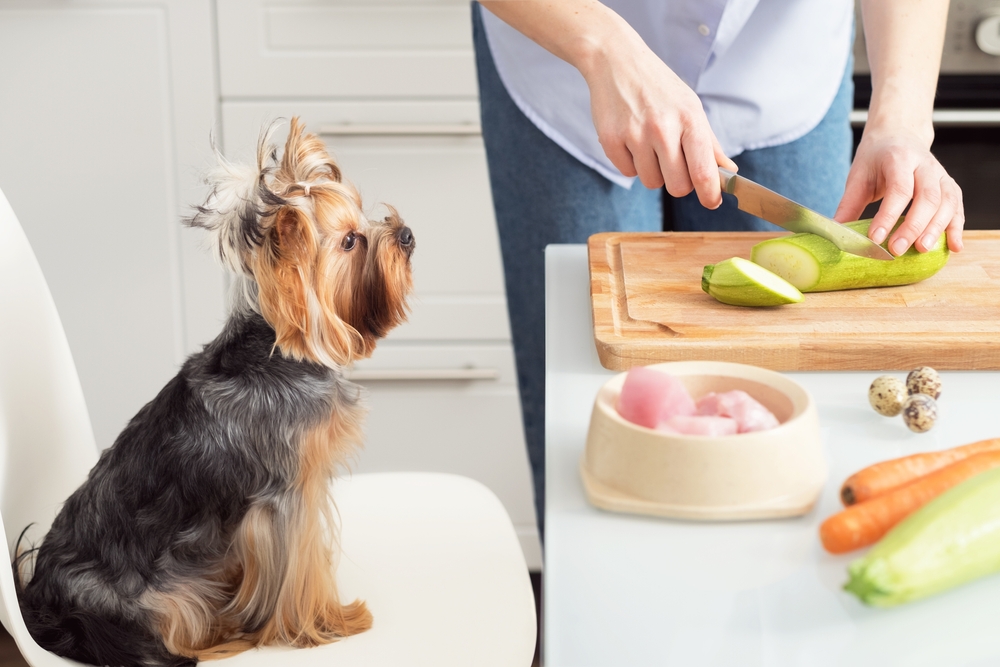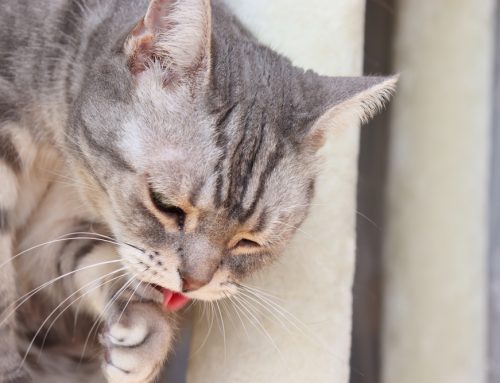Have you ever found yourself in the pet food aisle, staring at a wall of kibble, wondering if you could whip up something healthier for your four-legged friend in your own kitchen? It’s a thought many pet owners ponder. Our Tidmore Veterinary Hospital team often fields questions about the pros and cons of homemade pet food.
While it sounds like a fantastic idea to have complete control over what your pet eats, it’s important to consider all aspects before diving into the world of DIY pet cuisine. Is homemade pet food truly healthier? Is it more cost-effective? Will it meet all of your pet’s nutritional needs?
The allure of homemade pet food
Making your pet’s food at home sounds wonderful, in theory. You control every ingredient, so no mystery meat or unpronounceable additives make it into your pet’s bowl. Plus, you can cater to your pet’s specific tastes and dietary needs. Who wouldn’t want to be the Gordon Ramsay of doggy dining or the Martha Stewart of kitty cuisine?
Balanced pet nutrition
While the idea of homemade pet food is appealing, it comes with its own set of challenges. Pets require a balanced diet that provides all the necessary nutrients, vitamins, and minerals. Unlike humans, who can tell us if something doesn’t taste right or if they feel a bit off, pets rely on us entirely to get it right.
It’s not just about mixing some chicken with rice and veggies. Properly balanced meals are essential to avoid nutritional deficiencies or excesses that can lead to health issues.
Pet nutritional needs
Dogs and cats have different nutritional requirements. Dogs need a balanced diet of protein, fats, carbohydrates, vitamins, and minerals. Cats, on the other hand, are obligate carnivores, meaning their diet should be high in animal protein and fat, with minimal carbohydrates.
Meeting these dietary needs is crucial for your pet’s health.
Professional veterinary guidance
One way to guarantee you’re doing it right is to consult a veterinary pet nutritionist. A pet nutritionist can help you design a diet plan tailored to your pet’s needs. It’s a bit like having a sous chef who knows exactly what your pet needs to thrive. Considering the pros and cons of homemade pet food with a professional can save a lot of trial and error.
Practical tips for homemade pet food

If you’re determined to give homemade pet food a try, here are a few tips to keep in mind:
- Variety is key — Use a mix of proteins, grains, and vegetables to provide a balanced diet.
- Supplements — Consider adding necessary supplements, since even well-planned homemade diets can lack essential nutrients. Balance.it is a great resource. They provide supplements to help balance homemade pet food diets.
- Recipes — Consult a veterinary nutritionist and follow recipes vetted by veterinarians or pet nutritionists.
- Avoid toxic foods — Keep onions, garlic, chocolate, and other toxic foods far away from your pet’s menu.
Deciding whether to make your pet’s food at home is a personal choice that depends on your time, resources, and willingness to learn. While it can be a rewarding endeavor, it’s important to approach it with the proper information and support. Our knowledgeable team at Tidmore Veterinary Hospital is here to help you make informed decisions about your pet’s diet and overall health. Ask Dr. White if you are interested in creating a homemade diet for your four-legged friend.
Ready to take the next step in your pet’s nutrition journey? Call us today for expert advice and personalized care plans tailored to your best pal’s needs.








Leave A Comment